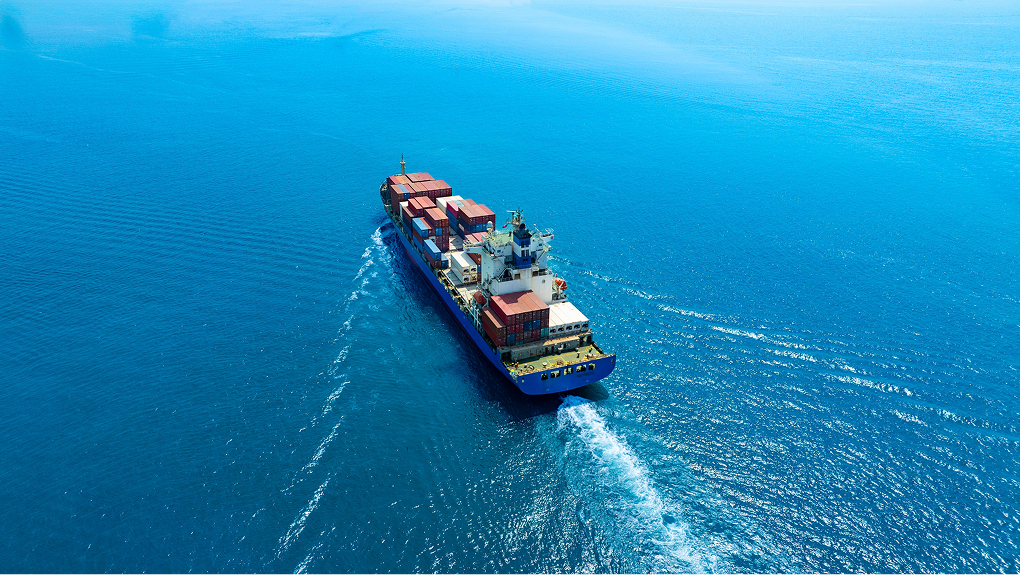“I’d recommend them to anyone working offshore. They fought hard and got me a settlement that helped cover my medical bills and lost wages.”



Cargo ships are the lifeblood of global commerce, transporting immense quantities of goods across oceans and through the bustling ports of the Gulf Coast. However, the sheer size, complexity, and inherent dangers of these massive vessels mean that cargo ship accidents can lead to devastating consequences for the dedicated maritime workers who operate and service them. If you or a loved one has suffered a serious injury aboard a cargo ship, container ship, or during port operations, you need skilled legal representation from attorneys who understand the unique intricacies of maritime law. At our firm, our experienced maritime injury lawyers are committed to fighting for the rights of injured seamen, longshoremen, and other offshore workers, ensuring they receive the full compensation necessary for their recovery and future.
Working on or around cargo ships is one of the most hazardous occupations. These vessels are floating industrial zones, with heavy machinery, shifting loads, and volatile materials, all operating in a dynamic environment.
Cargo ship accidents often result from a combination of factors, frequently involving negligence on the part of vessel owners, operators, or employers. Common causes include:
The sheer scale of cargo ships and the nature of the work often lead to severe, life-altering injuries when accidents occur. These can include:
If you are injured while working on or around a cargo ship, your rights are protected by specific federal maritime laws. Identifying which law applies to your situation is crucial for building a successful claim.
Most crew members working on cargo ships are considered “seamen” under the Jones Act. This vital federal law allows injured seamen to sue their employers for negligence that caused or contributed to their injuries. This “negligence” can be almost any act or omission, however slight, that makes the work environment unsafe. The Jones Act also entitles injured seamen to “maintenance and cure,” which covers their living expenses and medical care until they reach maximum medical improvement, regardless of fault.
If you were injured while working on a dock, pier, wharf, or within certain areas adjacent to navigable waters (e.g., a longshoreman, stevedore, ship repairer, or harbor worker) and were injured by a cargo ship or its operations, you are likely covered by the Longshore and Harbor Workers’ Compensation Act (LHWCA). The LHWCA is a federal workers’ compensation program that provides benefits for medical expenses, lost wages, and vocational rehabilitation, generally without needing to prove employer fault.
Beyond the Jones Act, seamen can also bring claims under General Maritime Law, particularly for unseaworthiness. This principle holds vessel owners strictly liable for providing a vessel that is reasonably fit for its intended purpose. An unseaworthy condition could include defective equipment, insufficient crew, or hazardous working conditions that directly lead to an injury.
Navigating the complexities of maritime law and taking on powerful shipping companies requires a highly skilled and dedicated legal team. A successful cargo ship accident claim hinges on thorough investigation. Our firm will:
We understand the devastating long-term impact of serious cargo ship injuries. We meticulously calculate all your damages to ensure you receive comprehensive compensation for:
Cargo ship accidents often involve international companies, foreign-flagged vessels, and complex federal regulations. Our attorneys possess the in-depth knowledge of maritime law required to:
Prioritize your safety and seek immediate medical attention for any injuries. Report the incident to your supervisor and ensure an official report is made. Document everything you can (photos, notes, witness contact info). Do not give recorded statements to your employer or their insurer without legal counsel.
Generally, the statute of limitations for maritime personal injury claims, including those under the Jones Act and General Maritime Law, is three years. However, specific circumstances or contracts could impose shorter deadlines (e.g., under the LHWCA or for claims against the U.S. government). It is critical to contact a maritime attorney as soon as possible.
Under the Jones Act, even if you were partly at fault for your injuries, you may still be able to recover compensation. Maritime law often applies a “comparative negligence” standard, meaning your damages would be reduced by your percentage of fault, but not completely eliminated.
“Maintenance and cure” are fundamental, no-fault benefits owed to injured seamen under general maritime law. Maintenance covers your basic living expenses while recovering (e.g., rent, food), and cure covers your medical treatment until you reach maximum medical improvement.
It is your legal right to seek independent legal counsel. Employers may discourage this to protect their own interests. Any pressure or retaliation for contacting an attorney is illegal, and you should immediately inform your lawyer if this occurs.
A serious injury from a cargo ship accident can drastically alter your life, impacting your ability to work, your financial stability, and your physical and emotional well-being. You deserve an advocate who understands the nuances of maritime law and will fight tirelessly on your behalf. At our firm, our Gulf Coast Cargo Ship Accident Lawyers have a proven track record of securing substantial compensation for injured maritime workers. We are ready to put our knowledge and resources to work for you.
Don’t face the powerful shipping companies alone. Protect your rights today.
Contact our experienced team for a free, confidential consultation.
